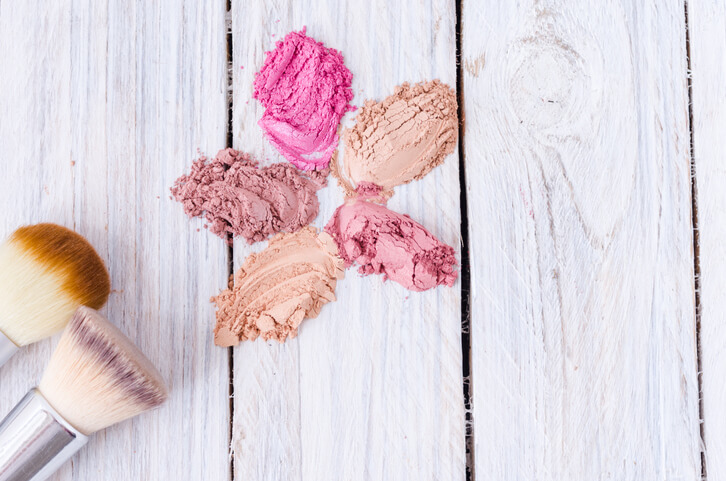The mineral talc may seem harmless, but it’s been attracting significant media scrutiny in recent months. Lawsuits from women who claim talcum powder use caused their ovarian cancer continue against the product’s manufacturer, Johnson & Johnson (J&J.) Expert testimonies in court debunk J&J’s innocence claims that the company’s talc-based products have no potential role in causing cancer. And a recall potentially affected thousands after asbestos testing found cancer-causing agents in a popular makeup brand made with talc. In addition, one J&J investor is now suing the company over the asbestos testing scandal involving talcum powder.
J&J’s Asbestos Testing History Goes Back Decades
For years, J&J asserted their talcum powder products were completely asbestos-free. But evidence presented at a 2017 trial says otherwise. Asbestos testing expert witness Aviam Elkies testified at a woman named Lois Slemp’s trial. Former NYU chemistry graduate student stated that he did research at the university under a J&J scholarship. There, he “did find asbestos in the baby powder of Johnson & Johnson.” Elkies also admitted that crystals showed up randomly in dozens of samples. According to court documents, Elkies said: “It might be one concentration, higher concentration, low concentration, none, of asbestos in the talc.”
Further Evidence Against J&J
Elkies isn’t the first to conduct asbestos testing and find suspicious particles in J&J’s talc samples. A 1972 lab report tested two batches of J&J’s Baby Powder. They found “insignificant amounts of tremolite — a few isolated crystals,” according to documents. Elkies’ professor at NYU conducted the initial test.
Related: Your Top Injury Claim FAQs, Answered
But Elkies testimony isn’t the only evidence against J&J. Two court documents were presented — both J&J memos. The first is from 1973. Titled WINDSOR MATERIALS AND TALC, the J&J employee wrote that, talcs used in the packaging of materials “contain widely varying amounts of tremolite or fibrous talc.” The memo continues, “Our Baby Powder contains talc fragments classifiable as fiber. Occasionally sub-trace quantities of tremolite or actinolite are identifiable and these might be classified as asbestos fiber.”
The second court document is from a 1974 memo. In it, a J&J employee wrote about his visit to the company’s Italian talc supplier, SVC. He did it to “forestall the upsetting impact which distribution of a recent SVC publication will have on the world talc market.” According to the memo, the SVC publication said their talc is, “the purest and best in the world… containing traces of chrysotile asbestos.”
J&J Investor Sues After Learning About Asbestos Testing Controversy
Despite repeatedly denying their talc contains asbestos, the evidence against J&J is strong. Which is why plaintiff Frank Hall, a J&J shareholder, is suing the company. His lawsuit represents all J&J investors who purchased shares between February 2013 and February 2018.
The suit alleges that J&J “has known for decades that its talc products, such as its Baby Powder, include asbestos fiber and that the exposure to those fibers can cause ovarian cancer and mesothelioma.” J&J is the defendant in the case, as well as CEO Alex Gorsky and CFO Dominic Caruso.
Related: Find Your State’s Deadline to File a Claim
Asbestos Testing Results Trigger Claire’s Makeup Recall
J&J is not the only company potentially under fire for talc products contaminated with asbestos. Florida-based retailer Claire’s allegedly sold talc products that could potentially cause cancer in children, according to recent asbestos testing results. According to a Time Magazine investigation, Claire’s recalled several items just a few days before Christmas. They did so after a Rhode Island mother voiced concern about her daughter’s makeup ingredients, including talc. The mother sent the product out for asbestos testing on her own, without going through the company directly. And the makeup samples allegedly tested positive for tremolite asbestos fibers.
Asbestos is associated with mesothelioma and other malignant cancers. The mother purchased various Claire’s products from nine different states. Each one apparently tested positively for tremolite asbestos. This contamination potentially affected thousands of little girls and teens prior to the recall. Claire’s has since denied the claims.
Colgate-Palmolive recently settled a lawsuit with a Pennsylvania woman named Carol Schoeniger. She claimed one of their talcum-powder products caused her to develop mesothelioma — a fatal lung disease. Asbestos exposure is the primary cause of this disease. She stated that the company failed to warn her of the risks and dangers of product use. Exposure to “inhalation or ingestion of the asbestos dust,” was the claim. Financial details of the case were not made public. But the California jury ordered Colgate-Palmolive to pay the woman $13 million.
What Talcum Powder Consumers Can Do
Consumers who developed cancer after prolonged talcum powder use may have an eligible case. Especially with manufacturers who covered up evidence regarding the safety of their products. But this is the first time a J&J investor has opened up a case against the company. After seeing the evidence brought forward at the talcum powder trial, the investor also felt misled by the drug giant. With the expert testimonies and court documents, the case against J&J only continues to grow. And with other talc-providers such as Claire’s and Colgate-Palmolive in the mix, it may be harming even more consumers.
If you or a loved one have been injured by a talcum-based product, you may have a case. Asbestos in the mineral has links to both ovarian cancer and mesothelioma. Fill out your free talcum powder claim review form today to see if you may have a case.
Related: The Color Run 5K: Is It Really Safe to Get Doused In Colorful Powder?
